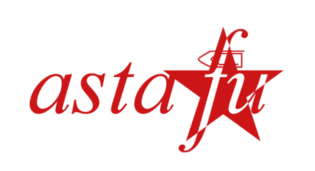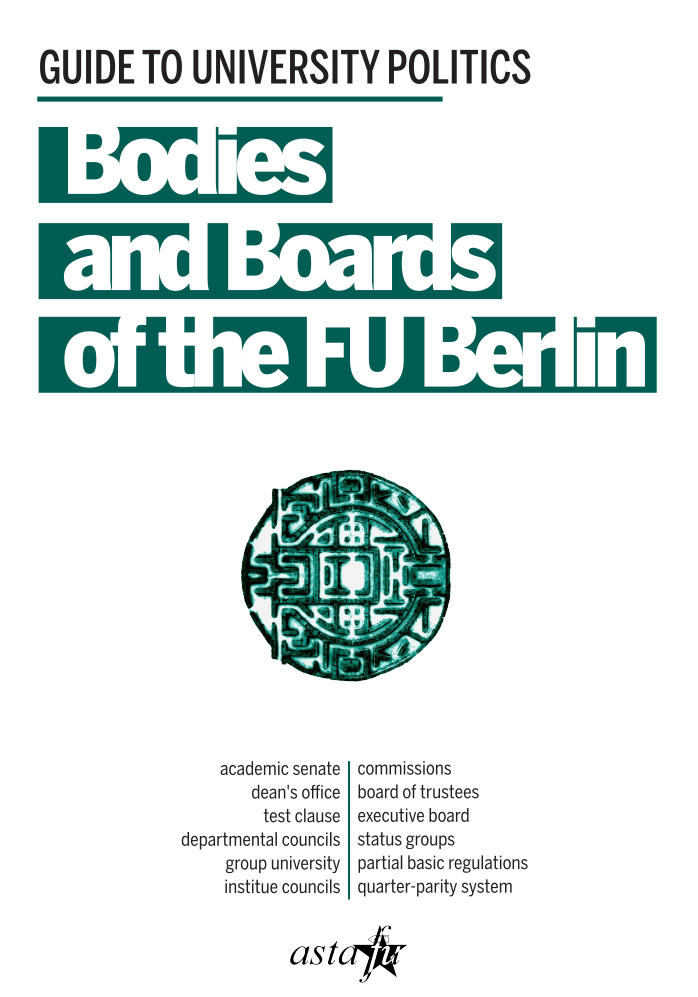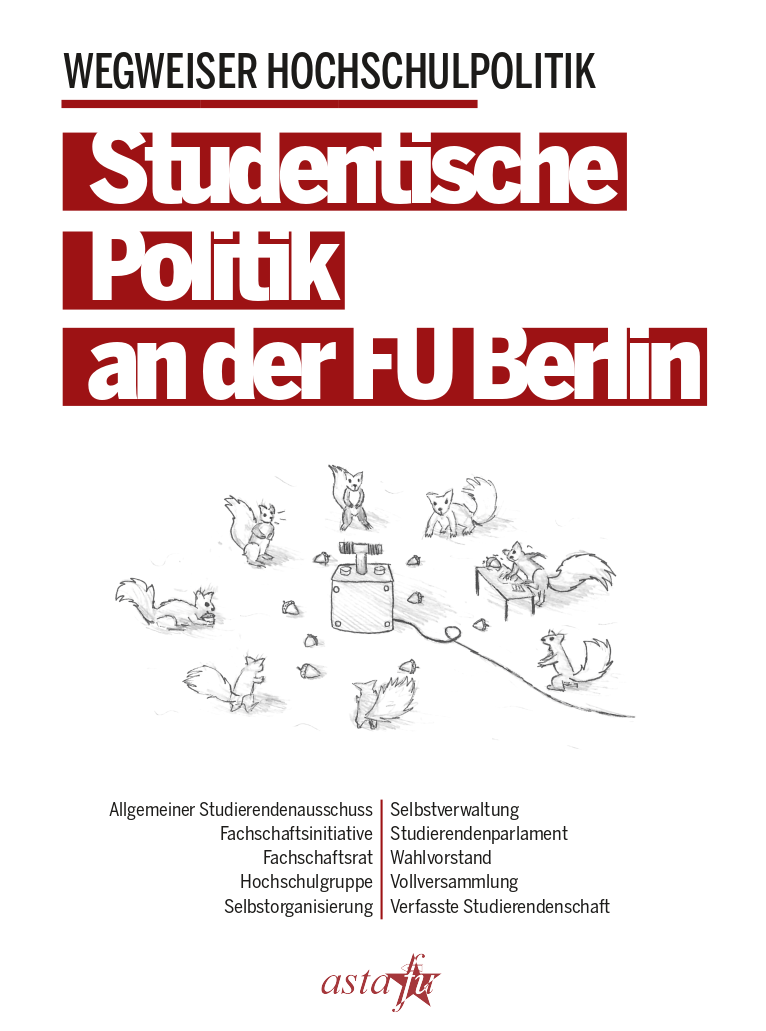Table of Contents
Here, various information and sources are collected on the topics of higher education, university, education and education policy and studying, with a focus on the "Freie" Universität Berlin.
This is supposed to contribute to an understanding of higher education and education policy and provide a space for various criticisms of current conditions. Unfortunately most resources are only available in German.
Guide to higher education policy
Is Freie Universität Berlin approaching an IPO?
Change in the university structure through soft steering
Guide to higher education policy
Bodies and Boards of the FU Berlin → translated version
Higher education policy can be quite complicated. At different levels, different people make decisions, sometimes intransparent ones, which then have a very concrete impact on our studies. But who actually decides what and where do students have a say? How has this relationship changed in recent years?
We have compiled an overview of these topics for you in this guide. Between these pages you will find an overview of Academic Self-Government, the institutional framework for democratic participation at the FU Berlin. In addition, there is a diverse self-organization among students who are responsible for student self-administration, which is explained in another issue of the series "Wegweiser Hochschulpolitik".
This brochure was translated by FAU-Betriebsgruppe at the FU Berlin.
To read or download the PDF online simply click on the image. (PDF in english)
Student Self Organization
The second flyer is dedicated to the student self organization at FU Berlin. It deals with the AStA, Students Parliament, Student Initiatives, other university groups and how these interact with each other.
To read or download the PDF online simply click on the image. (PDF in german language)
Is Freie Universität Berlin approaching an IPO?
Remarks on the economization of science
"In his farewell lecture on July 11, 2007, as professor of political science, Bodo Zeuner analyzes the process of transforming universities into companies using the example of Freie Universität Berlin, which was voted the most entrepreneurial university in Germany in 2006. Transforming academic institutions of research and learning into companies means transforming them into profit-oriented enterprises, commercializing their production, promoting ruinous competition between them, and eliminating all forms of internal democracy and co-determination. As a "business model" project, it is full of inconsistencies. And although there are opportunities for resistance, they do not all point in the same direction."
Read or download text as PDF online. (PDF in german language)
Zeuner, B. (2007). Die Freie Universität Berlin vor dem Börsengang?. PROKLA. Zeitschrift für Kritische Sozialwissenschaft, 37(148), 325-350
Change in the university structure through soft steering
The Example of Freie Universität Berlin
"For some years now, it has seemed that universities are only interested in the effective production of graduates for the international markets and much less, if at all, in the training of a critical intelligence. The social sciences have done little to analyse and solve the numerous crises (and wars) of recent years. Contrary to what was announced after the financial crisis of 2007, a turning away from neo-liberal politics, especially at universities, has by no means taken place. The opposite was the case. It was only now that the dictates of an economization of education began to take hold. The lever for the resounding success of neoliberal reforms in higher education under the motto "More autonomy for universities" is the concept of soft governance, which differs from previous strategies of higher education policy. Soft control or "soft law", as the English term is called, is the opposite of "hard control" by laws, apparently gentle, philanthropic and pleasant, but unlike these, not democratically legitimized. As an example for the transformation of an institution by means of the concept of soft governance, the volume examines the Freie Universität Berlin, especially the Department of Political and Social Sciences".
This book is a good starting point to understand the university structure at the FU fundamentally and in its change in recent years.
It can be borrowed from the FU library collection or ordered for 8€ from the BdWi-Verlag. (Text in german language)
Walz, Sarah. Wandel der Hochschulstruktur durch weiche Steuerung: das Beispiel der Freien Universität Berlin. Reihe Hochschule, Band 10. Marburg: BdWi-Verlag, 2016. 154 Seiten
This page is a project of the Departments of Higher Education Policy and Teaching&Studies and will be filled up in the coming semesters.


